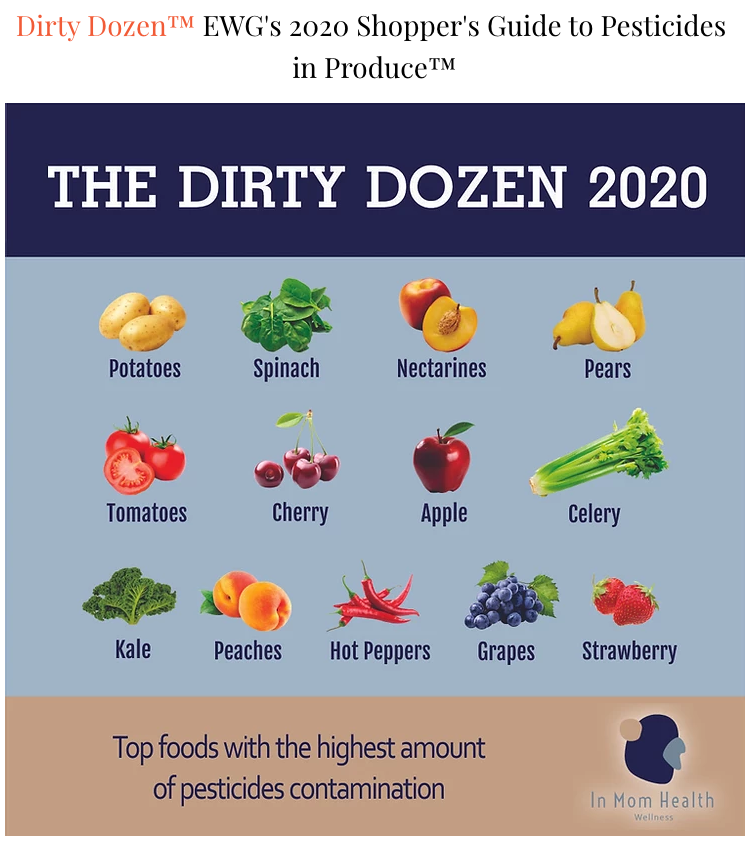The 2020 Dirty Dozen List is Live!
The Environmental Working Group (EWG) puts out a clean 15 list every year.
This handy guide helps you avoid the Dirty Dozen, the non-organic fruits and vegetables that are highest in pesticide residues! Once again, strawberries topped the “Dirty Dozen” list for the fourth year in row.
Did you know that a recent French study published in JAMA Internal Medicine surveyed almost 70,000 participants and found that those who ate the most organic food were associated with 25 percent fewer cancers.
The Environmental Working Group (EWG) is a non-profit, non-partisan organization dedicated to protecting human health and the environment. They research what’s in our tap water, the safety of our cosmetics, genetically modified organisms (GMO / GE), and the amounts of pesticides in and on our food, among other things.
NOTE: A small amount of sweet corn, papaya and summer squash sold in the United States is produced from genetically modified seeds. Buy organic varieties of these crops if you want to avoid genetically modified produce.

